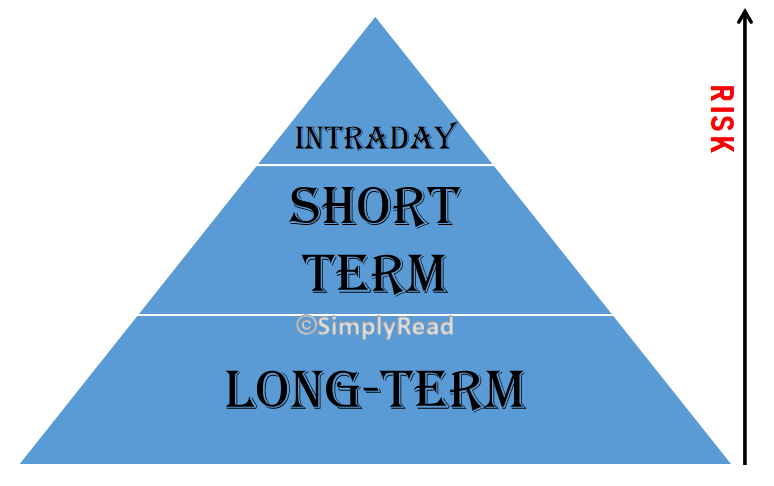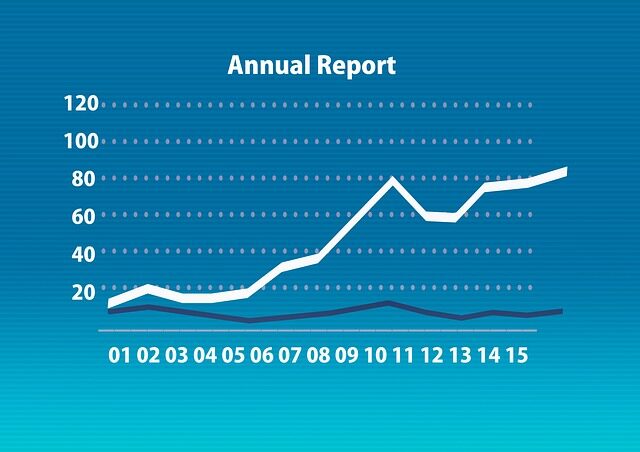We know that Of all investment strategies Stock market investments give a handsome return. Among the stock market investments, Equity is even greater. Also, You might have heard a lot about equity. In this article, we are going to learn about Equity investment strategies.
Dear Reader, Welcome to SimplyRead. Yes, Here things are so simple!
WHAT IS EQUITY?
Equity is nothing but the shares of the company. In other words, Equity refers to ownership of the company. Click here to read about the basics of the stock market. Moreover, Investing in equity refers to buying and holding stocks followed by selling them for profit/loss. Also, this process is referred to as Delivery. There is another method called short selling but it can be done only with intraday trading. However, In this article, we are going to focus only on investing and not trading.

BENEFITS OF EQUITY INVESTMENT
There are a lot of benefits to investing in the Equity market. However, we are going to discuss the most important benefits which stand out from other instruments.
1.DIVIDENDS
Dividends are the company’s profits distributed among the investors/shareholders. Also, Dividend is exclusive to equity investing. Moreover, These dividends can be rolled out for each quarter or half yearly or yearly basis. Additionally, the dividends are some percentage of the invested amount. Ex: Represented as 160% or ₹2 per share. Remember not all companies provide dividends and it depends on the performance and revenue of the company. However, it’s better to invest in a company that provides dividends. Hence, the investor can earn interest(Dividends) like FD.
2.RETURNS & HOLDING PERIOD
As already discussed, returns on equity are higher than any other investment strategies. Also, the holding period in Equity can be any duration. For Example, Consider you’re buying a stock for ₹100 and on some days the stock price falls to ₹90. However, there is nothing to worry about unless you sell the stock in the loss. Besides, you can hold the stock in the loss. whenever the stock price bounces above ₹100 you can sell it with profit. This type of strategy is exclusively for equity.
3.DIVERSIFICATION
Diversification is the process of allocating funds to different sectors or fields. Moreover, this is an important aspect that everyone should take care of. Equity investing provides the well diverse opportunity of investing in stocks in various sectors. For Example, You’re planning to buy land worth one lakh rupees. Now, this investment is only based on one or two sectors such as agriculture, Infra. On the contrary, Investing one lakh rupees in the stock market can be diversified among various sectors. These sectors include Infra, bank, Agriculture, Technology, Metal, FMCG, etc.,
4.LIQUIDITY
Liquidity is nothing but the probability of converting the investment to cash. Undoubtedly, Equity Investing provides Liquidity to a greater extent. The investor can buy and sell stocks anytime during market hours and convert them to cash.
5.OTHERS
Others include Bonus shares, Stock split, Re-listing of shares, Initial Public Offering (IPO), Follow on Public Offer (FPO), etc. However, these things are purely based on the company’s decision.
HOLDING PERIOD
Holding period means holding/storing the stock in the Demat account for a particular period. Click here to read about the Demat Account which is mandatory for investing in the stock market. Also, the holding period can be of a day, month, or year. Besides, it is based on individual’s choice and their risk profile. Generally, the Holding period can be broadly classified as Intraday, Short Term, and Long Term.

1.INTRADAY
Intra means “Within“. And here it refers to within the day i.e. same day. Buying and Selling of stock happen on the same day. Usually, People think that stocks first need to be purchased followed by selling them. But, the investor can sell the stock first followed by buying. This procedure is called short selling. Moreover, Short selling can be done only with Intraday trading. Generally, people who are doing regular trading follow this method.
2.SHORT TERM
Short Term holding means holding the stocks for the short term. For Ex: If I buy a stock today and sell it after 3 months then it is called Short Term Investing. Moreover, the period is based on the individual’s choice. Investor’s having a short-term goal follow this type of investing.
3.LONG TERM
Long Term holding means holding the stocks for the long term. Additionally, this is quite opposite of the short-term holding. For Ex: If I buy a stock today and sell it after some years or a decade, then it is called as Short Term Investing. Similar to the short term, the period is based on the individual’s choice. Investor’s having a Long Term goal such as buying a new house follow this type of investing.
MODES OF INVESTMENT IN EQUITY
Here are some of the modes of equity investment as follows.
- INDIVIDUAL STOCKS: Directly buying and selling of the desired stocks using the Demat Account.
- MUTUAL FUNDS: Mutual funds hold the set of individual stocks and other securities. There will be a Relationship Manager(RM) to manage these funds. Click here to learn about Mutual Funds.
- EXCHANGE TRADED FUNDS (ETF): ETF is similar to a mutual fund with a set of individual stocks but traded actively on exchange.
- FUTURES & OPTIONS: Futures and Options are derivative trading where the returns are too high. Moreover, it’s contract-based trading and the holding period is limited based on the contract.
- OTHERS: Funds customized by financial institutions, banks, etc., can have Equity as part of their portfolio. Also, In India Pension funds have their exposure to Equity markets.
FACTORS AFFECTING EQUITY
There are several factors that affect the Equity market as well as the common stock market. Beware of these situations while getting ready to invest.





- Supply and Demand. Click here for Basics of Stock Market.
- Current Events. Ex: Dividend announcement, Quarterly reports of the company.
- Natural Disaster. Ex: COVID-19
- Investor Sentiment. Ex: Attitude to invest.
- Politics. Ex: Budget announcement, change of ministries.
- Exchange Rate. Ex: Value of currency.
- Interest Rate. Ex: In India, the Reserve Bank of India changes interest rates which affects the economy.
SELECTION OF STOCKS
Selection of stocks can be defined as choosing the best stock which gives a handsome return. Here are some of the common factors to select a stock.
- Technical Analysis
- Fundamental Analysis
- Finding a Sector/Theme
TO WRAP THINGS UP!
Have you got a brief idea about Equity Investment?
Start your Investment from today. If you’re holding back because of Myths, Click here.
Any Queries? Let me know in the comment box! So Simple!



2 comments